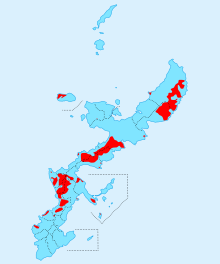1. My own home; bed; pillow.
2. Reuniting with the dogs.
Worst Things About Returning From a Family Vacation
1. Cooking! Washing dishes!
2. Having a zillion tasks that were shelved until after vacation.
3. Thinking I see my son everywhere I go and then remembering it can't be him.
Absolute Worst Thing About Returning From a Family Vacation
The very worst thing, bar none, is having to confront the reality that none of us can stop time. For a week or so, I can live inside the illusion that my husband and kids and I are still a four-person unit, and that status will never change. Of course, it's already changed. My son is a grown man with a job waiting for him to start in September and a new apartment he shares with his girlfriend. My daughter is in college and even though she's still a work in progress, more and more often I see glimmers of the woman she's becoming. But when the four of us go on vacations together, it's like we enter an unspoken pact to pretend that they're still The Kids and my husband and I are still The Parents. No one tells The Kids they have to act that way, so I have to think that they derive some measure of comfort from this arrangement too. Because of course all of us know that time has changed us and will keep changing us even more. The four of us will drift apart and then, if we're fortunate, back together, but in new configurations. They'll both start their own families, and those will become primary to them. My husband and I will retire from our jobs at some point, and we'll have to figure out where our next steps will lead us. The future is exciting, scary, inevitable. So once in a while, for a short and finite time, it's restful to stop moving forward into whatever comes next. It feels good for all of us to climb back into the nest together, and just be the way we used to be, even though we all know it's artificial. And then our little idyll ends.
Vacation photos to follow soon.
p.s. This afternoon I came across a poem by Nilanjana Bose, a gifted poet whom I e-met during the A to Z Challenge, that perfectly fit my elegiac mood, so I thought I'd share it here.
SHELLS
The laughter’s gone from this heart.
the lamplight’s gone from this home;
the threshold, the corners are dark,
the ones who’d lit it up depart
for cities from where no letters come;
for cities that no one returns from.
The water’s as tall as the crops -
the river’s too full of herself,
ear by ear the grain starts to rot,
the young scatter in search of jobs,
the old watch unable to help;
the lamp stands unlit on its shelf.
The fathers can keep their eyes dry
and keep their words clipped and brief;
but they pause far too much, they sigh,
and their lips suddenly pull awry;
the mothers are too bowed to weep
gone to places even beyond grief.
The water stands as high as the rice
the harvest has stopped in its tracks;
the lamp flickers once before it dies -
the light lays its head on the thighs
of the dark and the young men pack
for cities, and they don’t come back.
We’re become the shell of a house.
We’re become the shell of a loving.
See how our garments fall loose.
See how our proud heads are bowed.
Once here the bulbul used to sing,
she’s now fallen quiet, there’s nothing.
* * * *
My feelings at the moment aren't quite as extreme as those Nila is expressing here - and I'd like to think I'm more than just an empty shell - but her poetry is always lovely, and always worth the read. You can find more of it on her blog, http://nilabose.blogspot.com.

